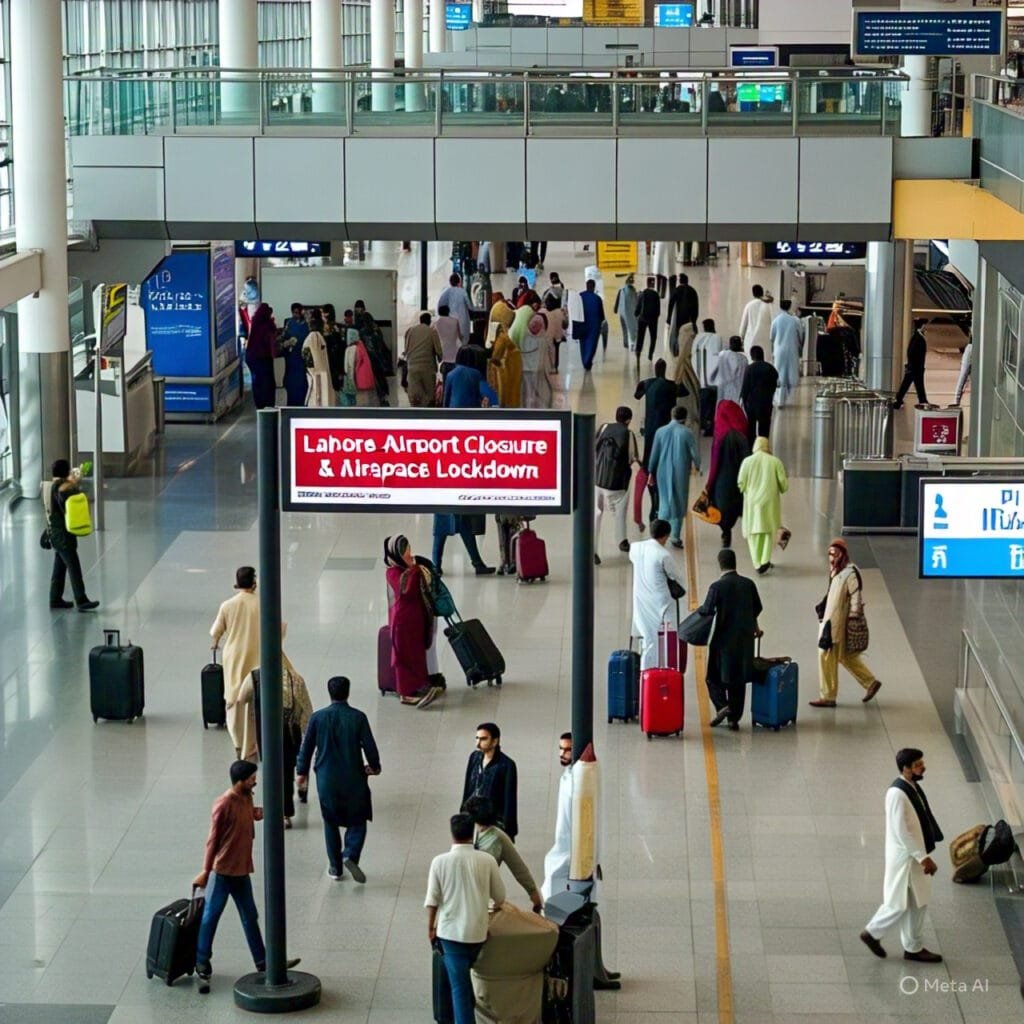
Pakistan’s Airspace Restrictions and Lahore Airport Closure: What Travelers Need to Know
As the geopolitical situation in the region continues to evolve, Pakistan has imposed significant airspace restrictions to ensure national security and protect its sovereignty. Among the most affected is Lahore’s Allama Iqbal International Airport, which is currently closed due to the airspace lockdown. In this blog, we will explore the reasons behind the closure, its impact on travelers, and what you need to know if you’re planning to fly in or out of Pakistan during this period.
What Are the Airspace Restrictions?
Pakistan’s airspace lockdown, which began in late April 2025, significantly affects Lahore’s Allama Iqbal International Airport (LHE), along with other major airports like Islamabad (ISB) and Karachi (KHI). The restrictions apply to both military and civilian aircraft, and many international flight routes have been rerouted to avoid the affected regions. This is a temporary measure aimed at ensuring the safety of Pakistan’s airspace during a period of heightened tension with neighboring India.
The closure of Lahore airport is part of this broader airspace lockdown and will last until further notice, with some regions expected to reopen once the situation stabilizes. The Pakistan Civil Aviation Authority (PCAA) has issued detailed guidelines about the situation, urging travelers to stay updated on flight statuses.
Why Are Airspace Restrictions Necessary?
- National Security Concerns
The main reason behind the airspace lockdown is to address national security concerns. With ongoing tensions between India and Pakistan, military activity and surveillance in the region have increased. Restricting certain air routes enables Pakistan to better control its airspace and prevent foreign aircraft, especially military ones, from entering sensitive areas.
- Protection Against Aerial Threats
Pakistan’s airspace is strategically critical, and in times of conflict, unrestricted airspace can be vulnerable to threats such as airstrikes and surveillance drones. The restrictions are designed to mitigate these risks, ensuring the safety of both military and civilian interests.
- Military Operations and Border Control
During periods of heightened military activity, airspace restrictions allow Pakistan’s armed forces to conduct operations without risking civilian interference or accidental strikes. This is especially critical in border regions where control over the skies is essential for national security.
Impact on Travelers
- Flight Cancellations and Delays
The closure of Lahore’s Allama Iqbal International Airport has resulted in significant disruptions for both domestic and international flights. Several global airlines, including Emirates, Qatar Airways, and Pakistan International Airlines (PIA), have had to adjust their flight paths and schedules. As a result, travelers may experience longer travel times, cancellations, or rescheduled flights.
- Rerouted Flights
International flights flying to or from Lahore are now being rerouted to avoid the restricted airspace. This particularly affects flights traveling between Europe, Asia, and the Middle East. Flights to and from the Middle East and South Asia may face longer routes, with some passengers having to disembark at alternate airports.
- Limited Airport Access
While major international airports such as Karachi (Jinnah International Airport) and Islamabad (Benazir Bhutto International Airport) remain operational, Lahore Airport remains closed due to the airspace restrictions. Travelers flying from Lahore are advised to check their airline’s website for updates on their flight status, and alternative travel arrangements may be necessary.
How Does This Affect International Airlines?
International airlines that typically operate through Lahore are facing operational challenges due to the airspace restrictions. Airlines such as Emirates, Air Arabia, and Singapore Airlines have adjusted their routes or canceled flights altogether. This has caused inconvenience for travelers, especially those heading to popular destinations like Dubai, London, and Bangkok.
Many airlines have communicated with passengers regarding changes, with some offering full refunds or alternative travel options. Passengers are strongly advised to check with their airlines for real-time updates on flight availability and schedule changes.
What Travelers Need to Know
- Stay Informed About Flight Updates
Given the dynamic nature of the airspace restrictions, it’s crucial for travelers to stay informed about the latest flight information. Airlines are regularly updating passengers through email alerts, SMS notifications, and their official websites. Ensure your contact information is accurate and frequently check for updates on flight status.
- Check for Alternate Travel Routes
If your flight has been canceled or rerouted, consider exploring alternate options. Some airlines may offer connections through different airports, such as Islamabad or Karachi, or provide accommodations for extended layovers.
- Follow PCAA and Airline Guidelines
The Pakistan Civil Aviation Authority (PCAA) is responsible for overseeing the airspace restrictions. Travelers should consult the PCAA’s official website for the latest NOTAM (Notice to Airmen) and related flight information. Airlines will also provide travel advisories to help passengers navigate these restrictions.
Conclusion: A Necessary Step for National Safety
While the closure of Lahore Airport and the ongoing airspace lockdown may cause significant inconvenience for travelers, these measures are crucial for ensuring national security and protecting both military and civilian air traffic. The restrictions are temporary and will be lifted once the situation stabilizes. Until then, travelers are urged to stay informed, follow official guidelines, and adjust their travel plans as necessary.
In times of heightened security concerns, national safety takes precedence. These airspace restrictions are a vital measure to safeguard Pakistan’s sovereignty and protect travelers. By understanding the reasons behind the restrictions and staying informed, travelers can minimize disruptions and proceed with their journeys with peace of mind.
FAQs about Pakistan’s Airspace Lockdown and Lahore Airport Closure
Are military aircraft allowed in Pakistan’s airspace?
Yes, Pakistan’s military operations continue within restricted regions, but foreign military aircraft are prohibited from entering sensitive airspace.
How long will the airspace restrictions last?
The restrictions are expected to remain in place until May 31, 2025, but this could be extended depending on the evolving situation.
Which airports are affected by the airspace closure?
Lahore’s Allama Iqbal International Airport (LHE), along with airports in Karachi (KHI) and Islamabad (ISB), is affected. Some smaller airports may also face limited operations.
How can I stay updated on flight cancellations or reroutes?
Check your airline’s website or customer service for real-time updates on flight availability and schedule changes.

